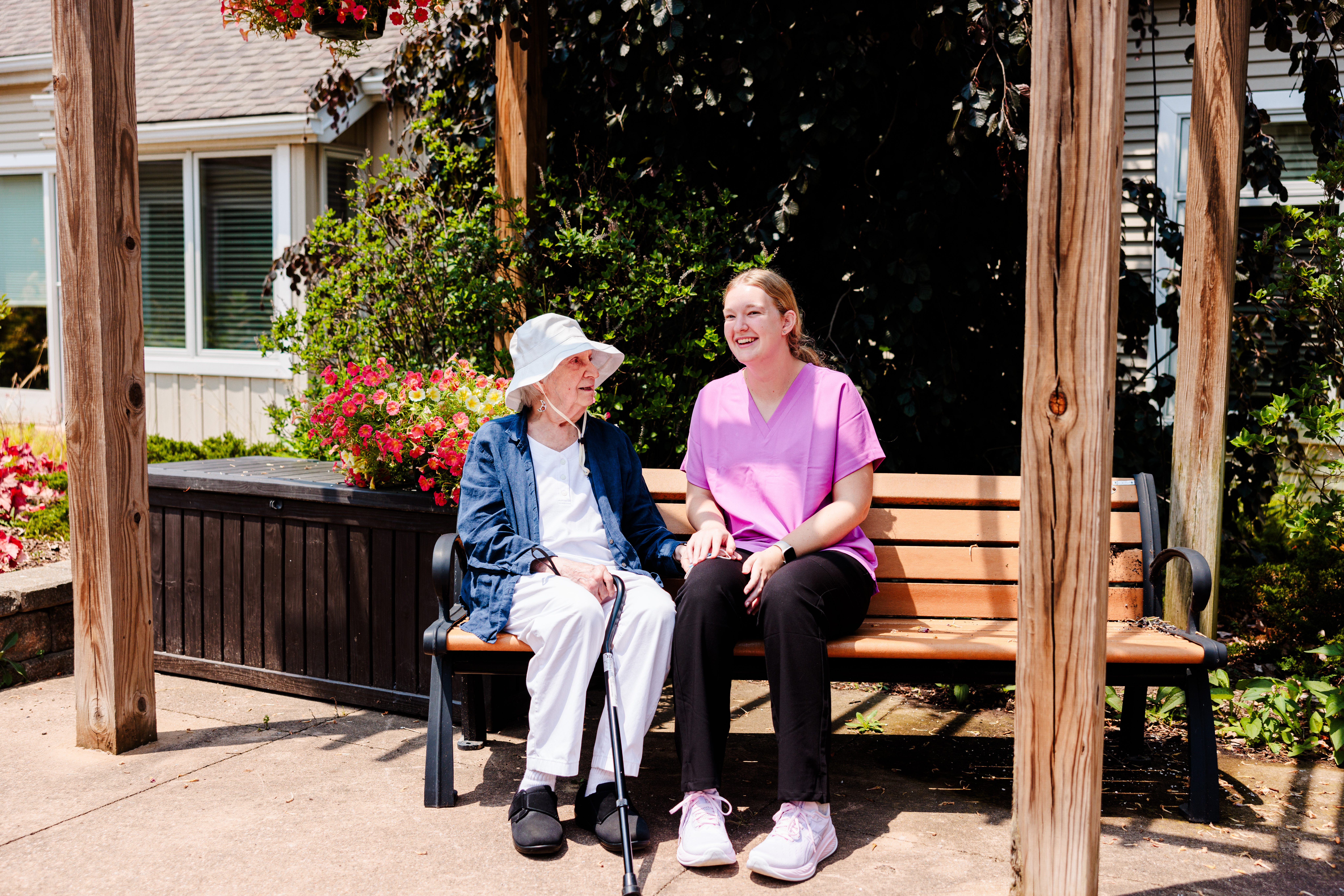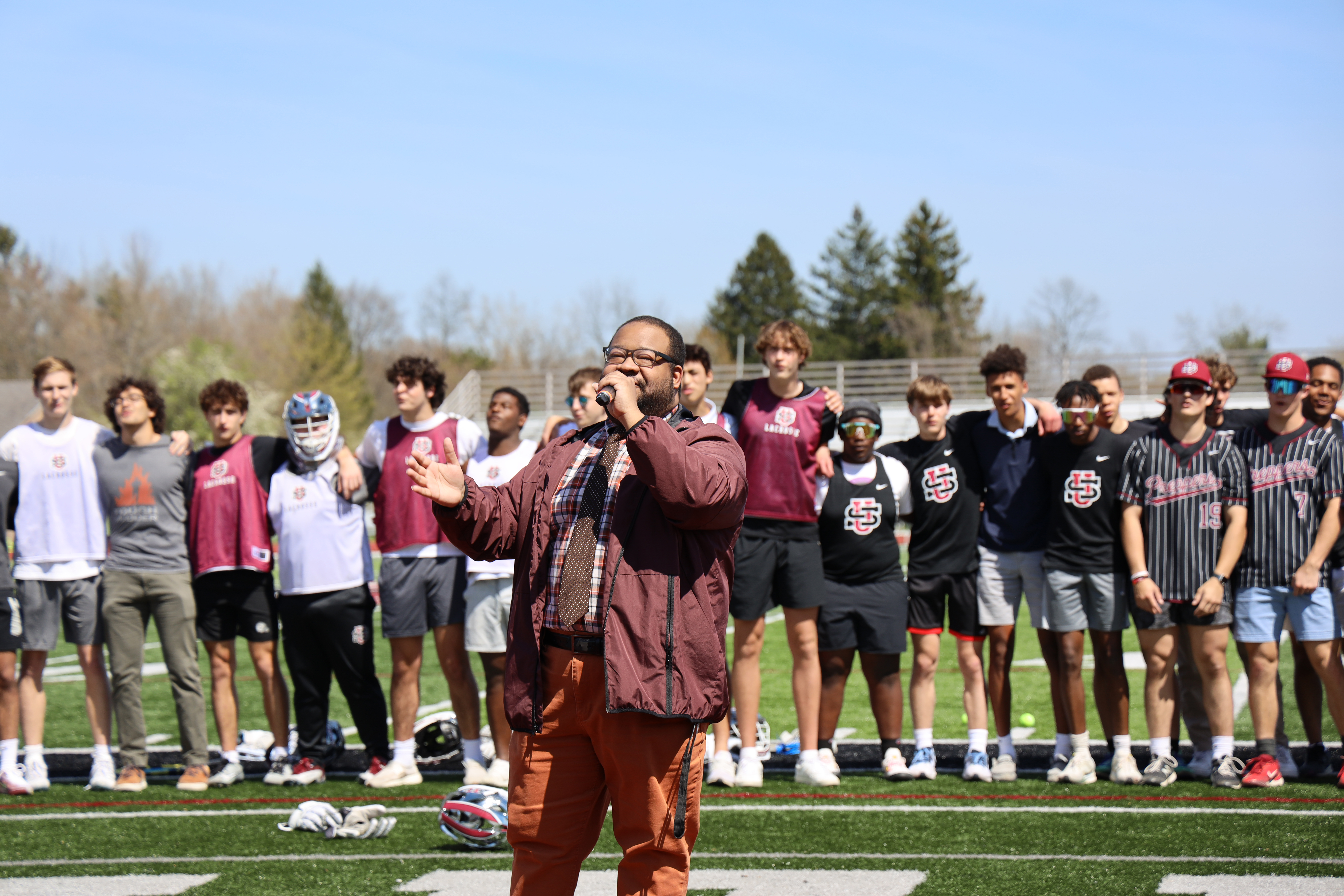Act III
by Mary Doria Russell | Apr. 28, 2005 | 4:00 AM
Here's the thing about being a baby boomer: You never get to have your own special crisis. No matter how dramatic and life-altering a moment is, you know it's about to become banal. Whatever boomers do, we do it en masse and in lockstep. By the end of the week, there'll be magazine articles about whatever just happened. Books start showing up on shelves a couple of months later. Before long, it's a Lifetime movie.
It's my turn to write the magazine article that will be published in a couple of months, so I assume you're out there, waiting to nod and say, "Oh, yeah. Me, too. Last week."
We boomers are now between 40 and 60, and that means our parents, our in-laws and our out-laws are generally between 60 and 90, retired or easing toward it, but not rocking-chair material, they'll have us know. A lot of us got a late start on having kids, so many of our children are still in school, strung out between kindergarten and college. A few years back, when this pattern took shape, there were articles calling us the Sandwich Generation, squashed between the demands of raising kids and the new responsibilities of looking after our elderly parents and other relatives who are living far beyond threescore and 10.
Our parents are adamant: They don't want to be a burden or a bother. Our kids are just as vocal: I'm not a baby anymore. But when they struggle, we're the ones they call.
Literature, theater and film encourage us to believe that life has a three-act structure. Act I is when people fall in love, choose work, get married, have babies (not necessarily in that order). Act II is about the consequences of those decisions, good, bad or ugly. Act III is supposed to resolve Act II's conflicts and bring resolution to our emotions through catharsis (tragedy) or comfort (comedy). The End.
That three-act structure has broken down, if indeed it ever existed in real life. Long past the time when we thought we'd be faced with this kind of thing, our parents are divorcing and we try to be supportive without taking sides. They're dating, remarrying, and suddenly we find ourselves with yet another stepfamily. They decide to move to a better climate and we help out, just as we do when our kids move into a college dorm, even though our own tricky backs make lifting boxes hazardous. We fly out of state to sit by our parents' bedsides during treatment for once-fatal conditions. Hips and knees are replaced, hearts are stented and replumbed, cancers are cut out. As we return home after each fresh crisis in a seemingly endless sequence, we can't help wondering if this treatment has merely made way for something even worse a few months from now.
When my mother was diagnosed with Stage IIIC ovarian cancer, I thought, Ah. Act III. The play will be over sometime in the next 18 months. But the most devastating and lethal of cancers seems to have become a chronic disease. Mom's diagnosis was three six-session rounds of chemo, 28 daily radiation treatments and 53 months ago.
She was a December baby, which means every year I come up with two presents, back to back, for a person who's impossible to buy for, but who will be deeply hurt if packages fail to arrive. As she approached her 79th year, I was buying gifts for a person who's dying slowly, valiantly and stubbornly, but dying nonetheless. I did pretty well. For her birthday: soothing CDs to play at night when she can't sleep and doesn't have TV or a mystery to distract her. For Christmas: a variety of small, easily handled, outdoor ornaments made of birdseed to attract wildlife to her little back yard for her and her elderly cat to enjoy.
That's nice, you think. Those are good ideas. You're getting that peaceful Third Act feeling. And it's even justified to some degree. Mom and I are still divided by all the culture clashes and political arguments that made our last presidential campaign such fun, but the relationship has become less fraught, if not truly comfortable. If this were a Lifetime movie, we'd be all set to get out our hankies for the tearjerking climax.
What I haven't told you is what else was going on while Mom's disease progressed out in New Hampshire.
Let's see. There was my son's second surgery to repair a clubfoot. While he was still in the wheelchair, there was my hysterectomy. (I know: Everybody's getting one, but did you know that fibroids could turn gangrenous? Extra points for me!) That was followed by every complication known to woman. Followed by an estrogen crash, followed by cognitive degradation so bad that I actually did get stupider by the day, just as my teen-ager suspected.
I was, during this time, on contract to deliver my third novel to Random House, but so impaired that I almost returned the advance to the publisher with a note saying, "I can't even read newspaper articles, let alone write a novel. Sorry." An alert gynecologist put me on HRT. Turns out, estrogen is a precursor to a whole list of really important neurotransmitters. All my life, I thought I had a good brain; instead, I just had good hormones. Whatever. Studies be damned, I'm on Estratest for life. Yeah, I know there's a higher risk of breast cancer, but if it's a choice between my brain and my boobs, the girls will have to go.
As I climbed slowly out of that black hole, my dearest uncle, out in California, was diagnosed with an aggressive brain cancer. I was able to visit twice before he died five months later. In Chicago, my father-in-law lurched between medical emergencies, finally dying of congestive heart failure at the age of 89, leaving my mom-in-law alone after 55 years of marriage. My son's first girlfriend tore up his heart in an ugly breakup. Even the collie turned out to have a congenital heart defect. God help me, instead of putting him down, we took him to a doggie cardiologist who provided Max with five additional quality months, at vast expense, at the end of which he died in my arms.
Mom's cancer dropped out of remission the second and third times while all this was happening. Oh, and my father had two heart attacks. In fact, the reason I have time to write this article today is that his open-heart surgery was postponed for a couple of days, so I won't have to drive out to Chicago until tomorrow.
Nota bene: New Hampshire, California, Illinois. I live here in Cleveland, and that means that every urge to go to a bedside involves eight to 15 hours of travel time, even if I fly. And that doesn't count the arrangements necessary when leaving a household with a teen-age boy, two (new) dogs, a tank of huge goldfish who were supposed to live in a pond outside and five finches — sonofa • One of the finches just died. I'm not making this up. He just hit the bottom of the cage. Unbelievable.
OK. Four finches.
So, finally, I had my very own little breakdown after working for years on the first two-thirds of "A Thread of Grace," about the Jewish underground in Genoa during the Nazi occupation of Italy, and I simply could not get past April of 1944. My characters had another 13 months of World War II to deal with, and the manuscript was four years past deadline, but I couldn't concentrate, couldn't put things together in my mind, couldn't sit still. It was January, but instead of being vaguely bummed out by the slate-gray Cleveland winter, I was way over-amped and the feedback was whistling something fierce.
I actually brought copies of my first two novels to my new doctor. "See?" I said. "I used to be able to do this! But now I can't and I think maybe I've developed adult-onset attention deficit hyperactivity disorder. Or maybe the testosterone component of Estratest is making me feel like a squirmy little boy in second grade, because I can't focus on anything and I have to move, move, move all the time, and I can't sleep or eat—"
She looked up the side effects of Estratest, none of which matched my symptoms. "What else is going on in your life?" she asked.
"Well, I'm fine," I told her with conviction, "but my uncle just died of brain cancer and my mom has ovarian cancer and my dad just had a heart attack and my father-in-law's congestive heart failure is getting worse and the dog is sick and my third novel is four years overdue—" And. And. And.
You know what's coming, don't you? Yep. That afternoon, I became a citizen of the Zoloft Nation. Everyone on SSRIs, put your hand up.
I have always been a militantly functional person, and resisted the idea that I couldn't handle everything God or fate or chance threw at me. I am well aware that my own life has been charmed and I am, daily, grateful for the fundamentals no one really has a right to expect. I have an enduring marriage with a great guy who's still crazy about me. I have a son who is a prince among teen-agers and who could not be more splendidly suited to his parents' talents and temperaments if we'd bioengineered him. I have satisfying work and success that has gone well into Wildest Dreams territory. But I have to admit it. I'm tired a lot of the time, stretched very thin most days, and I yearn for simpler times.
If I'd been born even 30 years earlier, my parents might have moved to separate bedrooms, but not to different states. Their illnesses would have killed them long before now. Absent surgeries and heroic orthodontia, I'd have lived my life cross-eyed, chinless and bucktoothed, way too homely (and way too smart) to attract a man. No marriage then and therefore no child in college, nor any beloved in-laws approaching 90, far from my home. A simpler life, unquestionably, but poorer by any calculation.
Does the sense of well-being bestowed by SSRIs invalidate the possibility of real happiness? What's the alternative? You could try throwing a Scarlett O'Hara hissy-fit and faint into Ashley Wilkes' arms, but that assumes Ashley's there to catch you and not taking care of Aunt Pitty-Pat who has Alzheimer's. Is hormone replacement normal or natural? No, but neither is my mother's continuing survival or my father-in-law's decade-long medically mediated battle with heart failure. Short of running away from home — and I've considered that — we can't duck these responsibilities. And if we tried, they'd just get worse. So we do what we have to do.
Boomer lives are impossible by the standards of the generations that preceded us. We do more. We have more. We accomplish more. We deal with more. Our lives aren't so much three-act plays as three-ring circuses, and we're the juggling act, keeping bowling balls, flaming batons and chainsaws going around and around, while everyone in the audience is watching the elephants.
My fellow jugglers, my brother and sister boomers: Take your antidepressants if necessary and take care of yourselves. Eat right, exercise and give yourselves a round of applause. You deserve it, and nobody else is going to notice.
Mary Doria Russell's third novel, "A Thread of Grace," has just been published by Random House. Her novels "The Sparrow" and "Children of God" have won numerous awards. Her Web site is www.MaryDoriaRussell.info.
Trending
-
1
-
2
-
3
-
4
-
5










